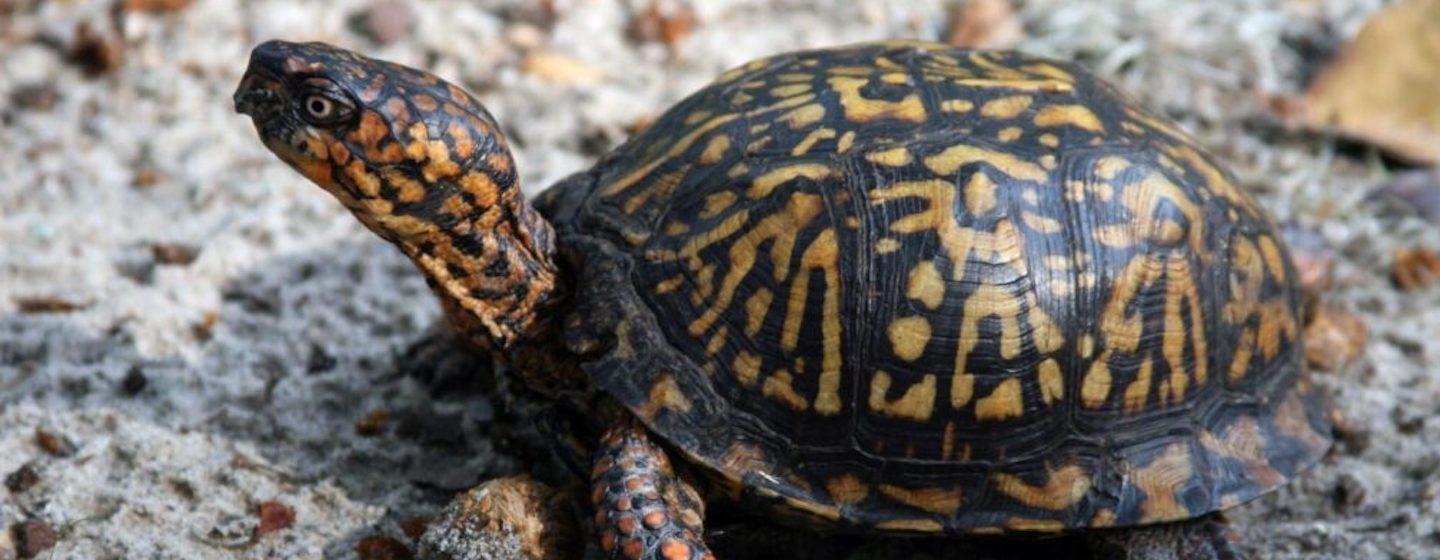It’s Brumation Time for Our Favorite Turtle


As temperatures start to cool off, there’s a good chance you’ll spot North Carolina’s official state reptile foraging for a last-minute snack or two, before settling in to brumate.
That state reptile is the Eastern Box Turtle.
The Eastern Box Turtle is found throughout the state, and in case you wondered, it gets its name from its protection plan. At the sign anything unfamiliar, the box turtle pulls its head and legs into the shell and then, in an amazing protection skill, uses the hinged pastron (the bottom part of the shell) to close up behind them forming an impenetrable box. Yep, that’s where the name “box turtle” comes from.
And brumation is what Eastern Box Turtles do in the winter.
Most people usually refer to it as hibernation, but technically, Eastern Box Turtles don’t hibernate. Brumation is a winter cool-down which allows the turtle to survive when food is scarce, and temperatures are lower. Turtles burrow into soft soil and enter into a period of sluggishness, inactivity and torpor. They live off stored fat and their metabolism slows but they can still move around if needed.
Habitat loss continues to threaten box turtles, especially in a state growing as fast as North Carolina. The International Union for Conservation of Nature reports that box turtle populations have fallen more than 30 percent since the mid 1900s
Moving at a speed measured in feet per hour, turtles are vulnerable to getting hit by cars, injured by lawn equipment, attacked by domestic animals, and picked up by the occasional human.
And that’s something important to remember. Don’t pick up a slow moving turtle, even though you think you might be helping it. Box turtles can’t be relocated.
They spend their entire lives—which can span over a hundred years—in one small area and, if moved, they will spend the rest of their life trying to get home. That means crossing through unfamiliar territory and often dying in the process.
So as our turtle friends prepare to brumate, or really anytime you spot a box turtle, don’t pick it up or move it unless it is injured or is in imminent danger. If you spot a turtle crossing a road, move it to the side in the direction it was going. Turtles have small home territories and should be left where they are found. Their survival depends on it!